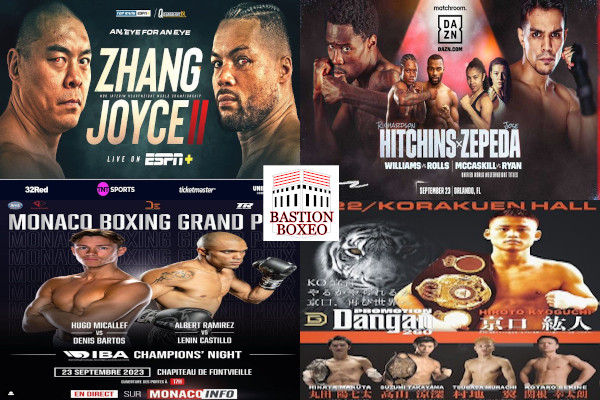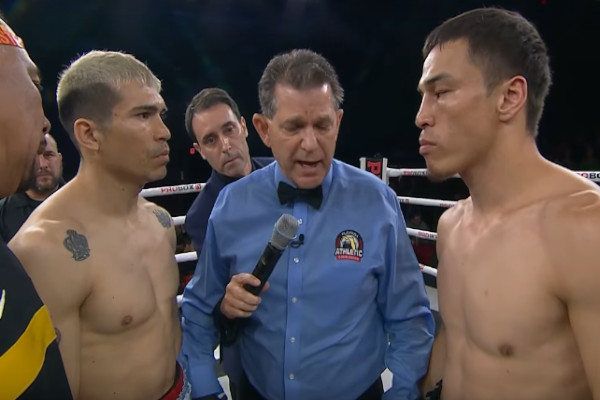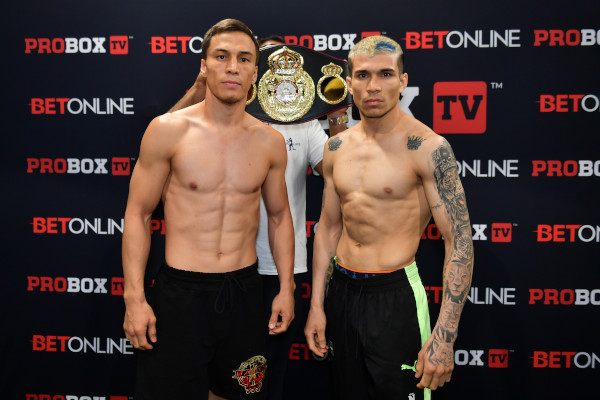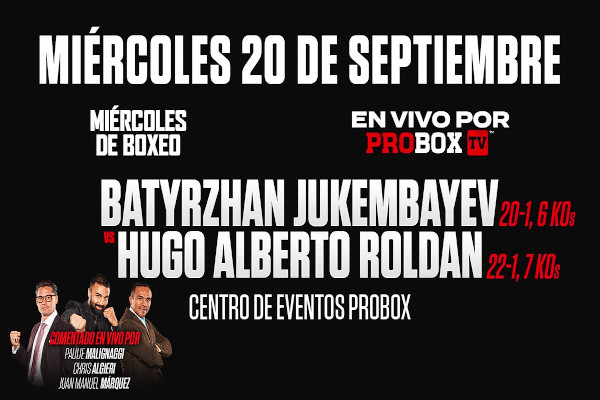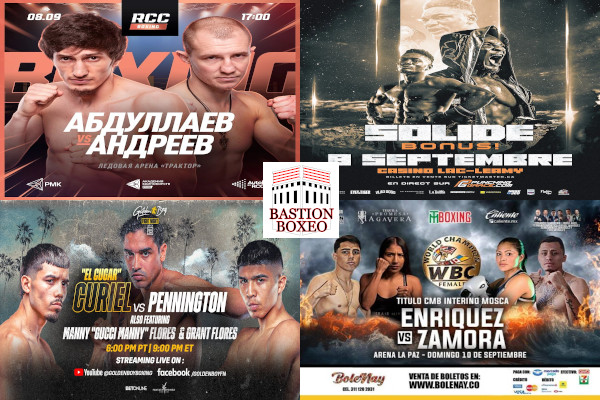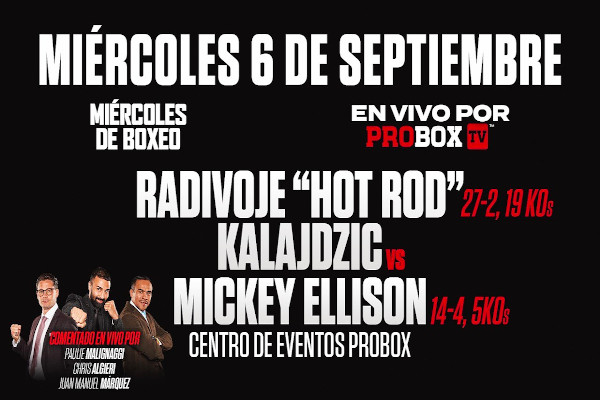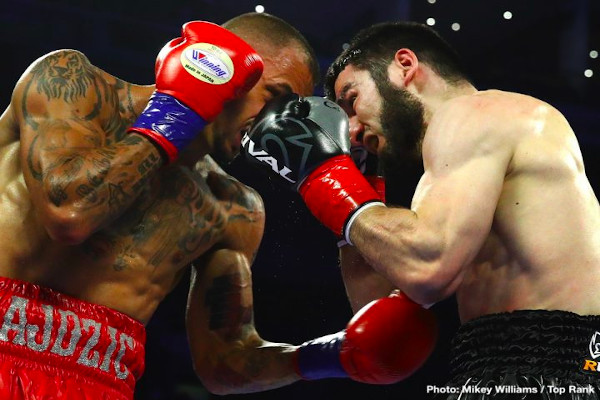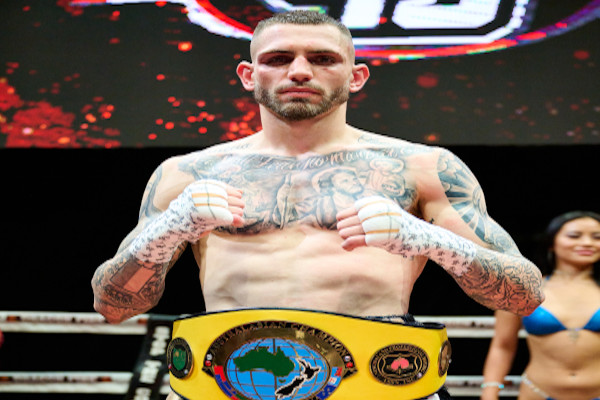El oro olímpico Tony Yoka se estrelló completamente en su prueba ante Martin Bakole, que lo vapuleó, derribó, y derrotó
Daniel Pi
@BastionBoxeo
Accor Arena, París, Francia. Peso pesado.
La pelea de este sábado del peso pesado francés Tony Yoka 11(9KO)-1 tenía que resultar clave para resolver dudas sobre el boxeo de este oro olímpico después de un recorrido profesional basado en peleas sencillas. Ciertamente, el combate dio muchas respuestas sobre Yoka, si bien casi todas negativas. Y es que éste fue completamente inferior al congoleño Martin Bakole 18(13KO)-1(1), que le derribó dos veces y le derrotó por decisión en lo que algunos aficionados y críticos franceses han calificado como una catástrofe para el boxeo de su país.
Para intentar evitarla los localistas jueces dieron puntuaciones increíblemente ajustadas y controvertidas de 94-94, 95-93 y 96-92, llegándose a un veredicto de decisión mayoritaria. De hecho, aunque Bakole controló gran parte de la pugna, sin los dos knockdowns probablemente habría perdido el combate, lo que muestra claramente la falta de dignidad y profesionalidad de estos jueces.
Acostumbrado a pelear contra piedras de toque modestísimas, púgiles veteranos, pesos cruceros y boxeadores de nivel UE, Yoka se encontró en un mundo completamente diferente ante el top 15 Bakole. El local intentó moverse y usar su jab, pero ejecutó mal sus ataques y sus transiciones a posición defensiva y se quedó en la distancia de golpeo de Bakole, que con casi todos sus primeros ganchos zurdos sacudió a su rival. Así, todavía en el primer round, Yoka cayó al tapiz tras un par de ganchos diestros arriba.
Confuso, perdido tácticamente y amedrentado, Yoka siguió gestionando mal la distancia, cerrándose en corta y usando indebidamente sus ventajas en técnica, reflejos y agilidad. Por ello, aunque Bakole, como siempre en su trayectoria, siguió apoyándose básicamente en potencia y alcance, pudo ir conectando duros hooks que movieron a Yoka y le provocaron una hemorragia nasal.
Por si fuese poco lo ya visto, hacia el cuarto asalto Yoka prácticamente renunció a atacar y se limitó a moverse, mientras que en el quinto asalto un hook de izquierda a la cabeza le puso de nuevo en el tapiz. Realmente, si Yoka pudo seguir en la pelea entonces y durante el resto de los asaltos fue debido a que Bakole tiene una tosquedad, una lentitud y un exceso de peso que le impidieron presionar más, tirar más golpes y terminar de romper a su contrincante. De hecho, a partir del séptimo asalto, y viendo que el congoleño se estaba cansando y que a veces ya no podía seguirle cuando corría, Yoka sacó alguna corta combinación que impactó contra su adversario.
De esa forma, Yoka pudo quizás capturar algún round, pero de ningún modo estuvo ni siquiera cerca del empate. Finalmente, siendo evidente que había perdido el combate, Yoka podría haber tratado de maquillar algo su actuación mostrado coraje y tirando lo que le quedase pero, contrariamente, cuando en el décimo asalto Bakole se paró en el centro del ring invitándole a pelear (algo que hizo por estar cansado), el oro olímpico ni siquiera se dignó a intentar atacar o fingir hacerlo, caminando por el ring sin atreverse a hacer nada más.
Al margen de que fue el cansancio de Bakole el que permitió sobre todo a Yoka tener algunos resultados positivos en el tramo final, dio la sensación de que con el paso de los minutos el francés gestionaba la distancia cada vez menos mal y encontraba huecos y pasos atrás que al principio del combate era incapaz de ver, lo que pareció mostrar que estaba adquiriendo experiencia sobre la marcha en la primera pelea de nivel de su carrera. Es decir, si Yoka hubiese tenido un matchmaking adecuado en sus primeros once combates, no peleas de lucimiento en las que evolucionaba insuficientemente, posiblemente habría podido ser mucho más competitivo.
En cualquier caso, contra un adversario ante el que tenía todas las ventajas posibles, Yoka fue manifiestamente inferior, hasta tal punto que se generaron importantes dudas respecto a su potencial de éxitos futuros. Todo prospecto, púgil en desarrollo o boxeador consolidado puede tener una mala noche, más aún teniendo en cuenta que incluso los insignes campeones no siempre tienen grandes actuaciones. Pero la cuestión no es que Yoka sufriese un primer tropiezo o que no estuviese a la altura, sino que en el combate falló tanto su boxeo como su mente, evidenciando que, cuanto menos, necesita muchísimo trabajo de ajuste y mejora antes de poder poner sus miras en disputar el mundial.
En cuanto al fortísimo y peligroso Bakole, con esta mayor victoria de su carrera quedará emplazado a una nueva trascendental pelea en el último tercio del año, a la que entrará con su prestigio disparado. No obstante, es necesario señalar que Bakole es fácil de golpear, que su boxeo es extremadamente simple y que su condición física esta lejos de ser óptima, por lo que, dependiendo de quién sea su rival, podría padecer graves dificultades.
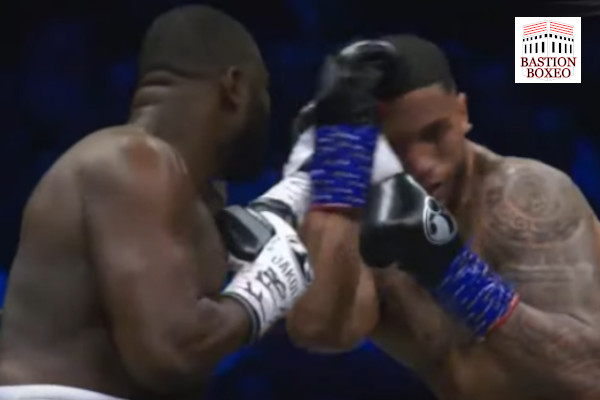
Olympic gold medalist Tony Yoka failed completely in his test against Martin Bakole, who beat, dropped and defeated him
Daniel Pi
@BastionBoxing
Accor Arena, Paris, France. Heavyweight.
On Saturday, the French heavyweight, and Olympic gold medalist, Tony Yoka 11(9KO)-1 faced a key test to resolving doubts about his boxing after a professional journey based on easy bouts. Certainly, the fight gave many answers about Yoka, although almost all of them were negative. Yoka was absolutely inferior to the Congolese Martin Bakole 18(13KO)-1(1), who knocked him down twice and defeated him by decision in what some French fans and analysts have described as a catastrophe for boxing in their country.
To try to avoid it, the local judges gave incredibly close and controversial scorecards (94-94, 95-93 and 96-92) in a majority decision verdict. In fact, although Bakole controlled much of the fight, without the two knockdowns he probably would have lost the match, which clearly shows the lack of dignity and professionalism of these judges.
Accustomed to fighting soft opponents, very veteran fighters, cruiserweights and EU-level boxers, Yoka found himself in a completely different scenario against the ranked Bakole. The local tried to move and use his jab, but he didn’t execute well his attacks nor his transitions to defensive position and stayed in the striking distance of Bakole, who with almost all of his first left hooks shook his rival. Thus, still in the first round, Yoka was dropped after a couple of right hooks.
Confused, tactically lost and intimidated, Yoka continued to mismanage the distance, rising his guard at close range and misusing his advantages in technique, reflexes and agility. Therefore, although Bakole, as always in his career, continued to rely basically on power and reach, he was able to land hard hooks that rocked Yoka and gave him a nosebleed.
As if that wasn’t enough, by the fourth round Yoka practically gave up attacking and just moved, while in the fifth round a left hook to the head put him on the mat again. Actually, if Yoka was able to continue in the fight then and during the rest of the rounds, it was because Bakole has a lack of technique, a slowness and an excess of weight that prevented him from pressing more, throwing more punches and breaking his opponent. In fact, from the seventh round, and seeing that the Congolese was getting tired and that sometimes he could no longer follow him when he ran, Yoka threw some short combinations that hit his opponent.
That way, Yoka was able to perhaps capture a few rounds, but by no means he was even close to a draw. Finally, being clear that he had lost the fight, Yoka could have tried to improve his performance somewhat by showing courage and throwing whatever he had left but, on the contrary, when in the tenth round Bakole stood in the center of the ring asking him to fight (something that he did because he was tired), the Olympic gold medalist did not even attack or pretend to do so, walking around the ring without daring to do anything else.
Apart from the fact that it was Bakole’s fatigue that allowed Yoka to have some positive results in the final stretch, it seemed that as the minutes went by the French managed the distance less and less badly and found gaps and steps back that at the beginning of the fight he was unable to see, which seemed to show that he was gaining experience on the fly in the first high level fight of his career. That is to say, if Yoka had had proper matchmaking in his first eleven matches, not easy bouts to show-off in which he evolved insufficiently, he possibly could have been much more competitive.
In any case, fighting an opponent against whom he had every possible advantage, Yoka was manifestly inferior, to such an extent that important doubts were generated regarding his potential for future successes. Any prospect or established boxer can have a bad night, especially considering that even the great champions do not always have great performances. But the point is not that Yoka suffered a first setback or that he was not up to the task, but rather that both his boxing and his mindset failed in the fight, showing that, at the very least, he needs a lot of improvement and work before he can look to compete in a world championship.
As for the very strong and dangerous Bakole, with this biggest victory of his career he will access to a new transcendental fight in the last third of the year, to which he will enter with his prestige very improved. However, it is necessary to point out that Bakole is easy to hit, that his boxing is extremely simple, and that his physical condition is far from optimal so, depending on who his rival is, he could suffer serious difficulties.

